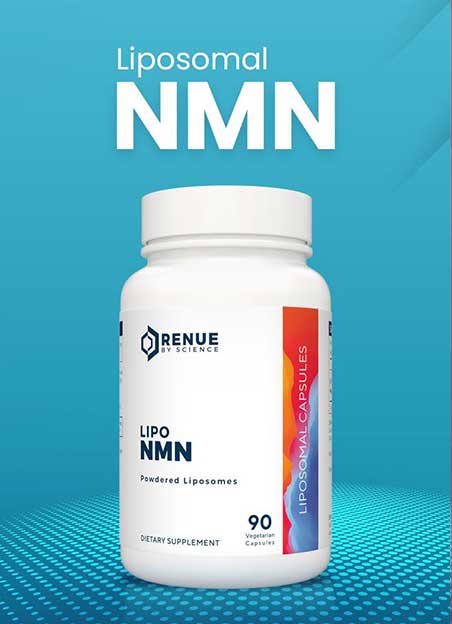
A major part of staying healthy involves getting the right nutrients to work together. Even if you’re eating well, certain vitamins—especially vitamin D3 and K2—can still be in short supply. And when they’re low, your body doesn’t function at full capacity. These two nutrients not only support bones and immunity, but they also play a powerful role in metabolism and fat storage. That’s why more people are now looking into the connection between vitamin D3 and K2 weight loss.
Here’s what the science actually says—and why it’s worth paying attention to how these vitamins work as a team.
Everything You Should Know About Vitamin D3
Vitamin D3 is a fat-soluble nutrient your body makes when your skin is exposed to sunlight. That’s why it’s often called the “sunshine vitamin.” But getting enough of it from the sun isn’t as easy as it sounds. Between office jobs, long winters, sunscreen, and air pollution, many of us don’t make nearly enough on our own.

Sure, you can get small amounts of D3 from food—things like:
- Fatty fish (like salmon, sardines, and mackerel)
- Cod liver oil
- Egg yolks
- Liver
- Butter
But unless you’re eating a whole lot of those foods, supplementation is usually necessary.
You’re Not Alone If You’re Low on D
It’s estimated that more than 1 billion people around the world are vitamin D deficient. That includes people who eat healthy and spend time outside. Modern life just makes it hard to get enough naturally, and honestly, it’s shocking to learn how common it is.
Not to mention studies suggest that the recommended daily intake of vitamin D may be too low to truly protect us from chronic diseases. It’s not just the bones—D3 affects everything from immune health to hormonal balance to, yes, how your body stores fat.
Here’s What D3 Actually Does for Weight Loss
D3 is incredibly important for metabolism. Here’s what the research says:
- It helps your body reduce visceral fat—that’s the dangerous kind that builds up around your organs.
- It improves insulin sensitivity, so your cells handle sugar more efficiently.
- It enhances glucose metabolism, reducing the chances of those carbs being stored as fat.
- It also supports thyroid function, which keeps your metabolism running.
It’s not a magic pill, but it’s definitely a key player, especially when you’ve already been doing the hard stuff and have not seen the results you expect.
Don’t Count on the Sun Alone
If you think a little sunshine here and there has you covered, think again. To get adequate vitamin D3 from the sun alone, you’d need to spend long stretches outdoors without sunscreen—every single day. And if you have darker skin, it takes even longer.
But here’s the issue: too much sun without protection is linked to skin cancer. According to the U.S. Preventive Services Task Force, people using sunscreen or with more melanin in their skin may not synthesize enough vitamin D through sunlight.
That’s why it’s recommended to treat D3 like a nutrient you need to manage, not something you just hope to absorb through your daily routine.
D2 vs. D3: Not All Vitamin D Is Created Equal
Vitamin D actually comes in three forms: D1, D2, and D3. Of those, only D2 and D3 really matter for human health.
D1 isn’t something you’ll find in supplements or your body’s daily needs. It was originally thought to be a distinct type of vitamin D, but it turns out it was just a mix of compounds. That’s why it’s no longer considered a real, usable form. You won’t see it on blood tests or supplement labels—and for good reason.
Now, when it comes to D2 (ergocalciferol) and D3 (cholecalciferol), the differences are worth paying attention to.
The thing is, both D2 and D3 are converted by the liver into compounds called 25-hydroxyvitamin D2 and 25-hydroxyvitamin D3, respectively. These are collectively known as calcifediol, and they’re what your doctor measures in a vitamin D blood test. But—and this is key—D3 consistently produces more calcifediol than D2 does, even at the exact same dosage.
There’s also a stability issue: D3 is more bioavailable and less prone to breaking down during storage. That matters if you’re relying on supplements to maintain consistent levels over time. So, while both D2 and D3 help your body make active vitamin D, D3 is the one your body recognizes more naturally and uses more efficiently. It’s the same form your skin produces from sunlight, and it simply outperforms D2 in just about every measurable way.
How Much D3 Do You Actually Need?
The answer depends on your lifestyle, health status, and sun exposure, but here’s what the National Institute of Health recommends:

Some people—myself included—need more to reach optimal levels, especially if you’re starting from a deficiency. But upping your D3 without a second ingredient in the mix can actually do more harm than good.
Now, Let’s Talk About Vitamin K2
Here’s a fun fact for you: Vitamin K was first mentioned in a Germany-based journal. It was first pronounced as “Koagulationsvitamin.” This is where the “K” first came from. Back in the early 20th century, Dr. Weston Price—a dentist who spent years studying traditional diets around the world—noticed something curious. Populations eating whole, unprocessed foods seemed to have stronger immunity, better teeth, and fewer chronic illnesses. He suspected there was a powerful nutrient behind it, something he couldn’t quite identify at the time. He called it “Activator X.” Years later, researchers confirmed that what he’d stumbled upon was vitamin K.
Where is Vitamin K Found in Nature?

You see, D3 helps you absorb calcium—but K2 makes sure it goes where it’s supposed to: into your bones and teeth, not your arteries. K2 is found in:
- Natto (a fermented Japanese soybean dish)
- Hard cheeses
- Egg yolks
- Liver
- Animal fats
Like D3, most people don’t get enough of it through diet alone. And a deficiency of the vitamin can increase blood vessel calcification, a condition associated with heart disease.
Why K2 Matters for Your Heart
One of the major factors in heart disease is calcium buildup in arteries. Vitamin K2 helps prevent calcium from depositing calcium in human arteries. In a 10-year study, people who consumed the highest levels of K2 had:
- A 57% lower risk of dying from heart disease
- A 52% reduction in arterial calcification
Another large study of over 16,000 women found that every 10 mcg increase in K2 lowered heart disease risk by 9%.
Those numbers aren’t small. And they’re part of the reason you should never take high-dose D3 without K2 again.

Image by Robina Weermeijer at UnSplsah
What K2 Does for Bones
For anyone concerned about osteoporosis—especially women post-menopause—K2 is a must-have. It helps shuttle calcium straight into the bones, where it strengthens them. In women already diagnosed with osteoporosis, K2 was shown to reduce:
- Spinal fractures by 60%
- Non-spinal fractures by 81%
That’s not just supportive—it’s preventive.
Teeth, Too? You Bet

Vitamin K2 is also essential for dental health as well. It activates osteocalcin, a protein that helps bind calcium in both bones and teeth. Even Weston A. Price, a dentist from nearly a century ago, suspected that traditional diets rich in K2 (though he didn’t know it by that name) helped prevent cavities and dental decay. He was onto something.
What About Cancer Risk?
While research is still ongoing, there are early signs that K2 may help reduce cancer risk. In a study with 11,000 men, those with the highest intake of K2 had a 63% lower risk of prostate cancer. That alone doesn’t make it a cure-all, but it’s certainly enough to grab one’s attention.
K1 vs. K2: Know the Difference
When vitamin K was first identified, it was mainly recognized for one job—helping the blood clot properly. That’s still true, especially for vitamin K1, which is found in leafy greens and mostly sticks to clotting duties. But over time, researchers discovered there’s another form, vitamin K2, and it operates in a completely different lane. Unlike K1, vitamin K2 plays a vital role in calcium metabolism, guiding calcium away from places it doesn’t belong—like your arteries and kidneys—and sending it where it’s actually needed, like your bones and teeth.
In fact, the differences between K1 and K2 are so distinct that some scientists believe they should be classified as separate nutrients altogether. One animal study from 2003 made that case even stronger: it found that vitamin K2 significantly reduced vascular calcification, while vitamin K1 had no effect at all. And that finding isn’t limited to animals. In human studies, K2 has consistently shown benefits for both heart and bone health, something K1 hasn’t been able to match. It’s a different tool for a different job.
What Happens When You Take D3 Without K2?
This is where things get risky.
High doses of vitamin D3 without enough K2 can lead to:
- Hypercalcemia (too much calcium in your blood)
- Calcium phosphate deposits in arteries and organs
- Blood vessel calcification (BVC), which increases your risk for heart disease
Several studies back this up. One found that high doses of vitamin K2 prevented BVC in rats. A human trial using 500 mcg of K2 supplements reduced BVC by 6%. Another showed that a K2-rich diet reduced both BVC and cardiovascular risk.
So yes, D3 is essential—but it needs K2 alongside it to do the job safely.
Finally, How Do Vitamin D3 and K2 Work Together for Weight Loss?
Here’s what it comes down to: vitamin D3 and K2 weight loss isn’t just a trendy phrase—it reflects a deeper understanding of how these nutrients work together. D3 improves metabolic efficiency, reduces visceral fat, and supports the hormones that regulate weight. However, without K2, that improved calcium absorption could actually lead to problems down the road. Together, they support better fat management, bone strength, and heart health.
Frequently Asked Questions
After breaking down the basics of vitamin D3 and K2, a few common questions always seem to come up. Let’s address them below.
Why would I need high doses of vitamin D3?
It’s tough to get enough D3 from food and sunlight alone—especially if you spend most of your time indoors or use sunscreen. Staying out long enough to make up the difference increases your risk of sun damage. Supplements offer a safer, more consistent way to maintain healthy levels.
Why is vitamin K2 important with D3?
D3 helps your body absorb calcium—but without K2, that calcium can build up in your arteries. K2 guides it into your bones, where it belongs, reducing the risk of calcification and supporting heart and bone health.
What makes D3 better than D2?
D3 raises blood levels of calcifediol more effectively than D2. Even at equal doses, D3 is better absorbed, more stable, and stays active in the body longer. That’s why it’s the preferred form for supplements.






